In the heart of Taiwan’s art scene, sculptor Hsu Tung Han has redefined the boundaries of traditional woodcarving, blending classical methods with contemporary digital aesthetics. Known for his pixelated figures that exude both motion and a surreal sense of displacement, Hsu crafts masterpieces that tell stories beyond the static form. His sculptures challenge the eye to see not only the figure but also the energy and movement as if the figure were being digitally deconstructed or brought to life.
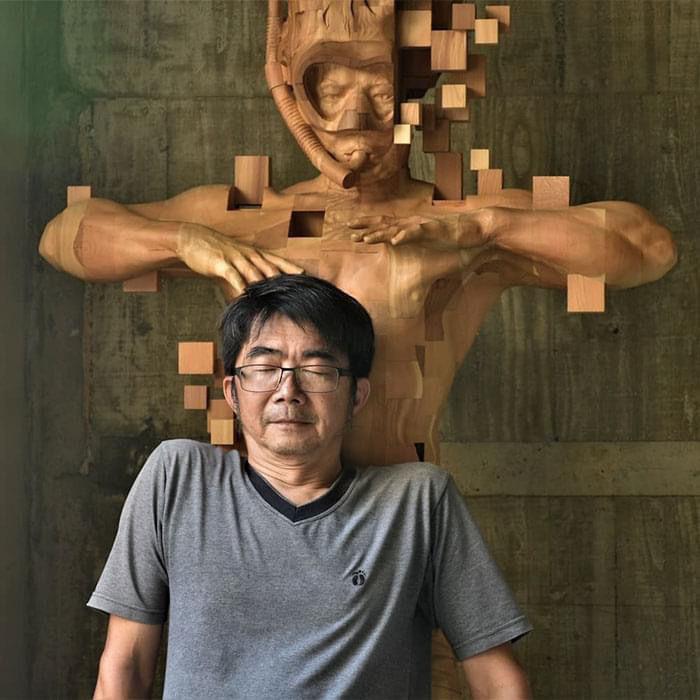
The Pixelated Twist on Tradition.
Traditional wood sculpting has a long, revered history in Taiwan, where artisans have passed down their techniques for generations. Hsu, a master in these classical techniques, holds a deep respect for this heritage. However, he steps beyond the expected by introducing a modern, pixelated effect into his work. Blocks of wood protrude from his sculptures like pixels, creating a sense of transition between solidity and dissolution.
The result? A fascinating illusion that makes the figures seem both there and not there as if they are caught mid-vanish in the digital ether. This illusion is no easy feat—Hsu’s process is precise, requiring meticulous planning and intense craftsmanship. It involves carving each “pixel” carefully to maintain the delicate balance between realistic human forms and abstract, digital distortion.
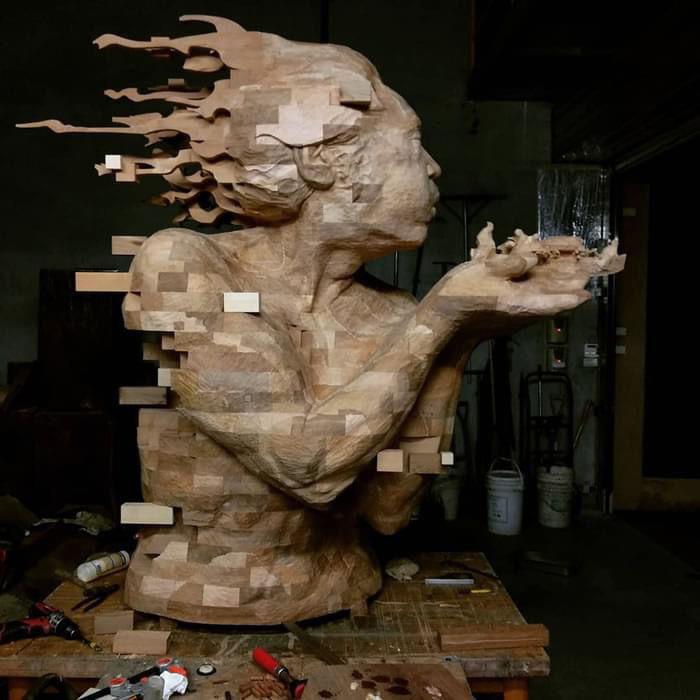
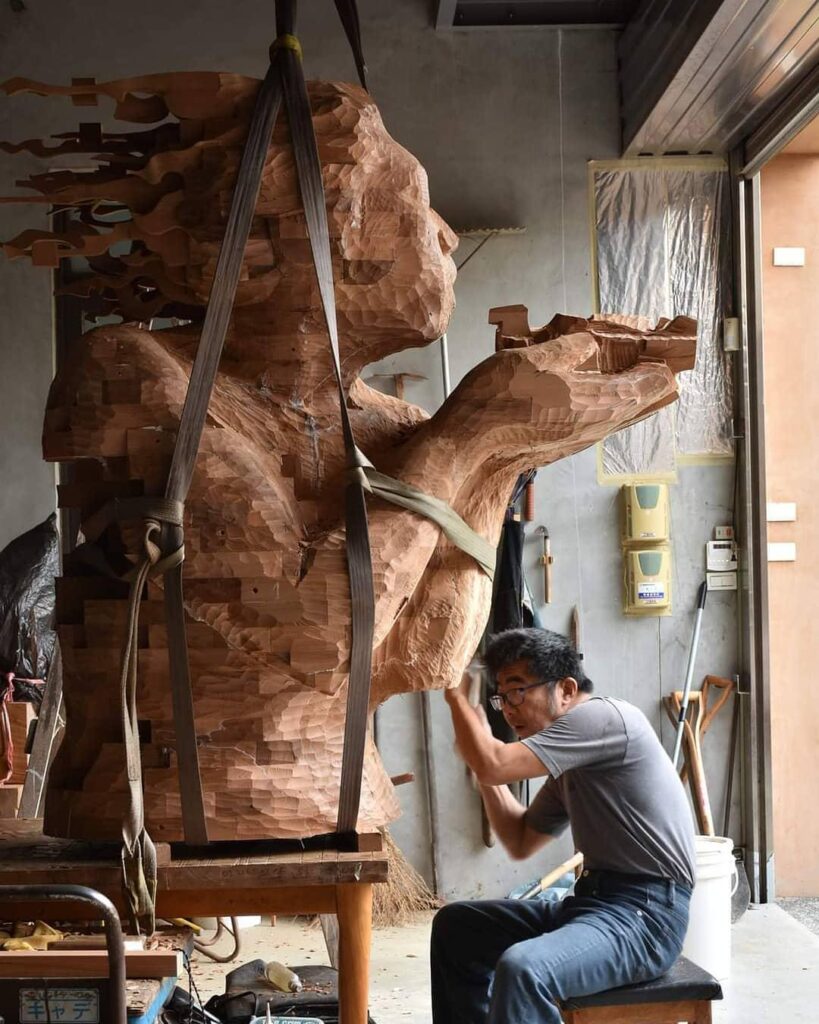
Creating Movement Through Displacement.
One of Hsu’s most celebrated achievements is his ability to create movement in stillness. The pixelated parts of his sculptures seem to vibrate, giving life to what would otherwise be static figures. This sense of motion conveys the idea of a person or a spirit captured in a fleeting moment. Some parts of the sculptures appear solid, while others dissolve into pixel-like fragments as if the figures are traveling between dimensions.
Hsu’s art not only impresses visually but invites a deeper reflection on the nature of existence. His pixelated figures speak to the digital age, where our identities, experiences, and memories are increasingly represented in digital formats, fragmented and impermanent.
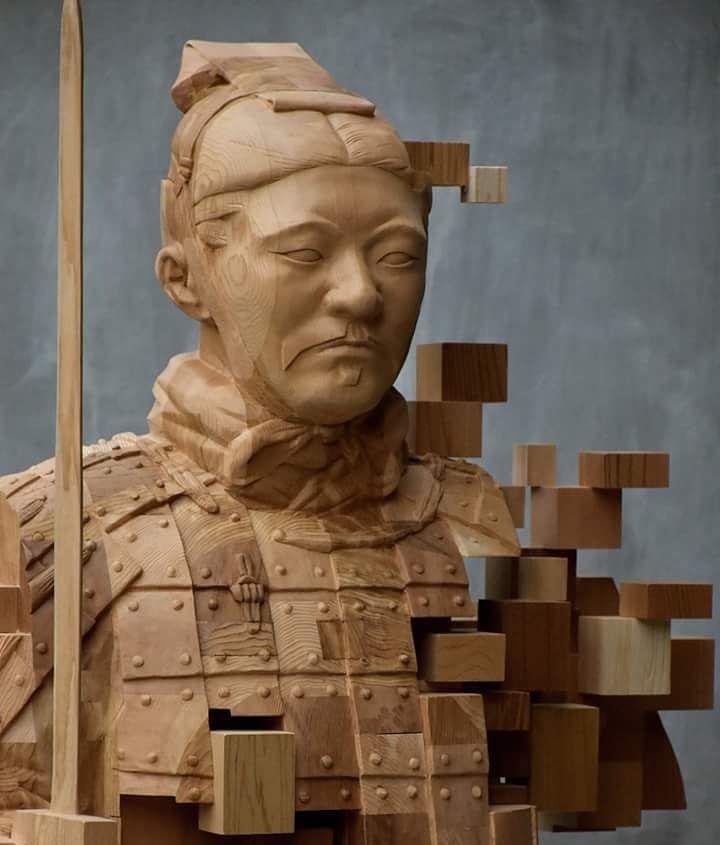
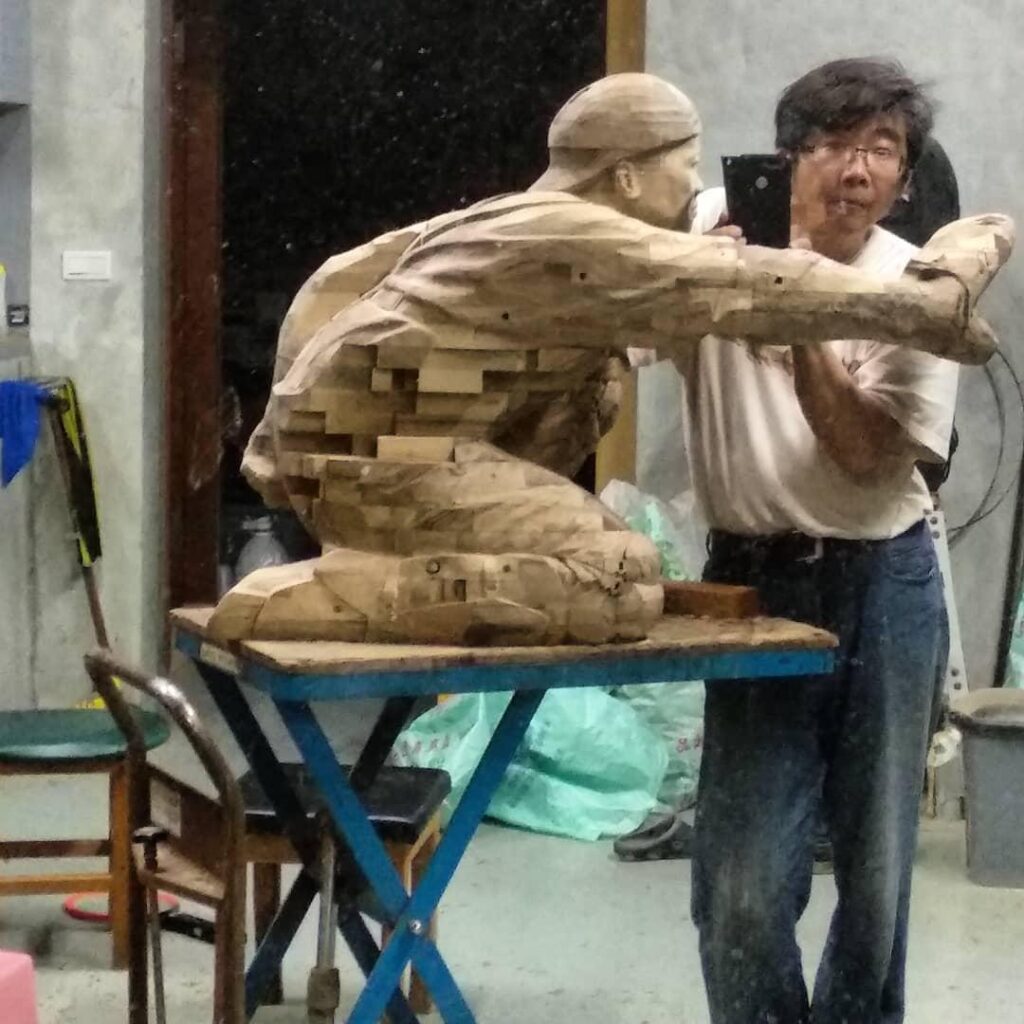
A Craft That Combines Tradition with Innovation.
The process Hsu follows is as intricate as the final result. Starting with large pieces of wood, he sketches the figure and pixelated sections in detail, blending contemporary design software with ancient hand-carving techniques. Using a chisel, saw, and an assortment of traditional tools, he carves each pixel with exacting precision. This level of detail demonstrates Hsu’s dedication to preserving craftsmanship, even as he explores its outer limits.
Hsu’s work has captured global attention because it appeals to something universal: the blending of the old and the new, the real and the virtual. His sculptures speak to viewers of all backgrounds by combining the tactile, earthy feel of wood with an aesthetic more often seen in digital media, breaking down barriers between tradition and modernity.
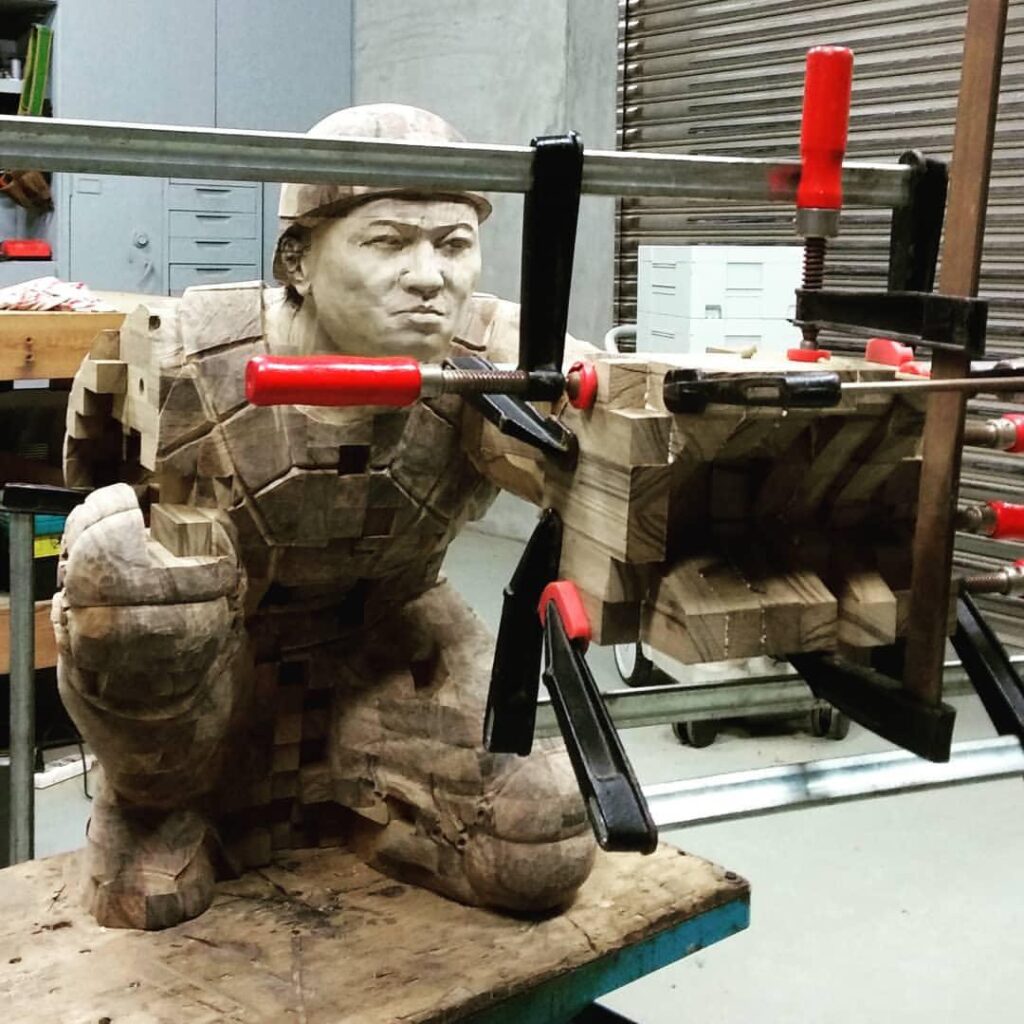
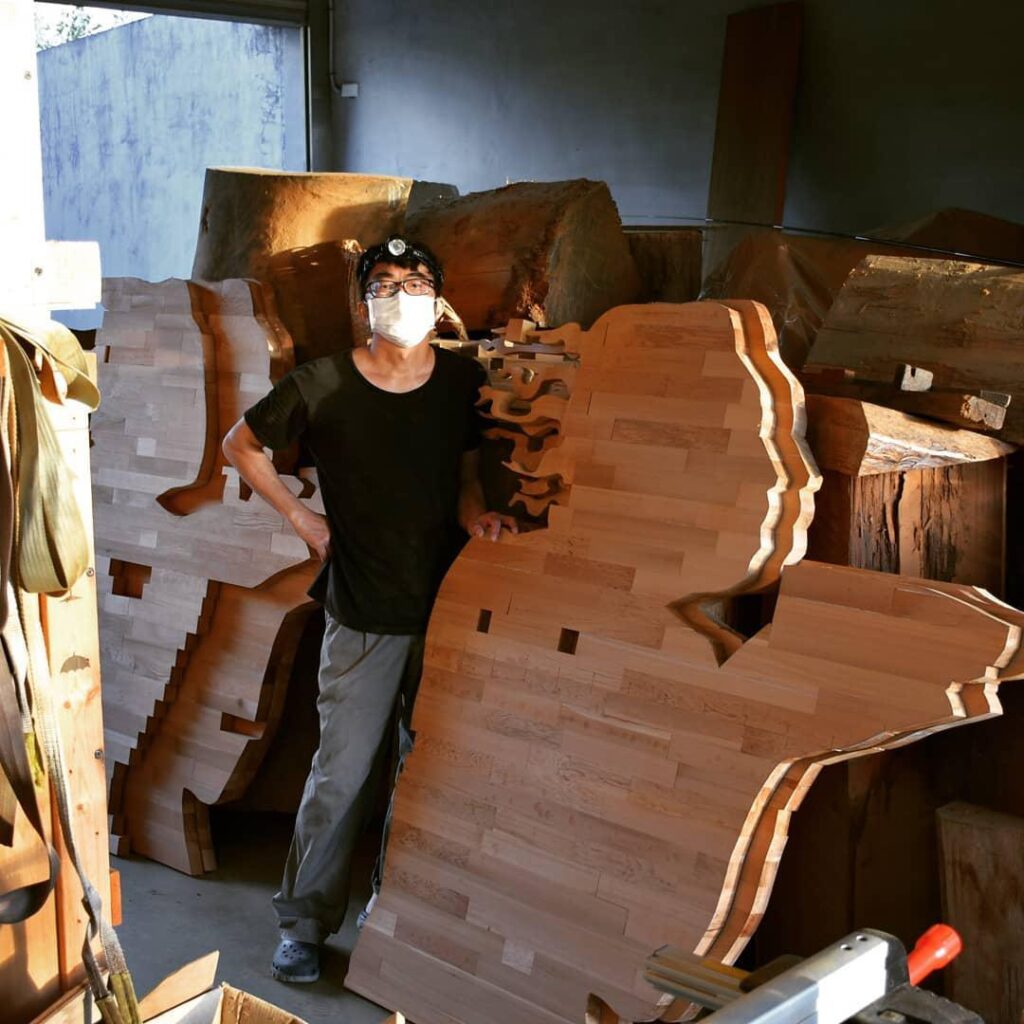
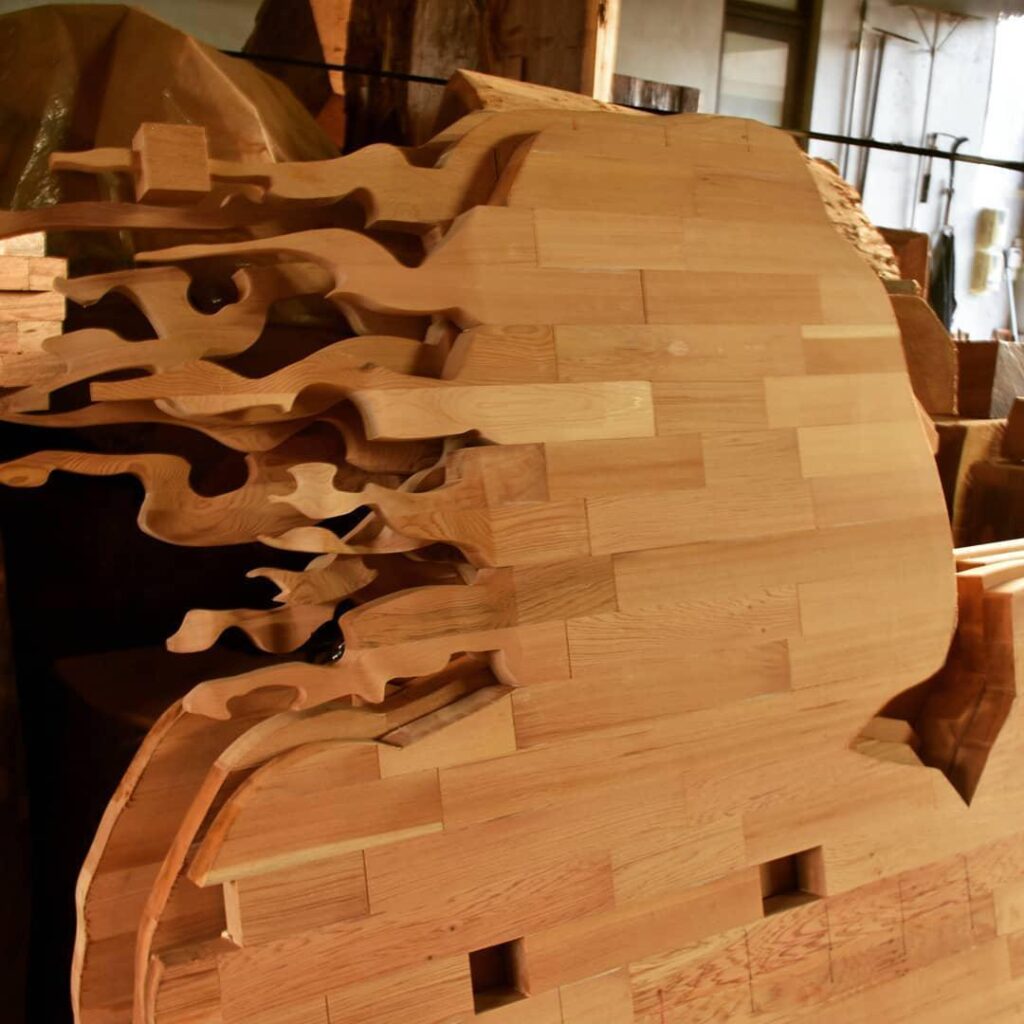
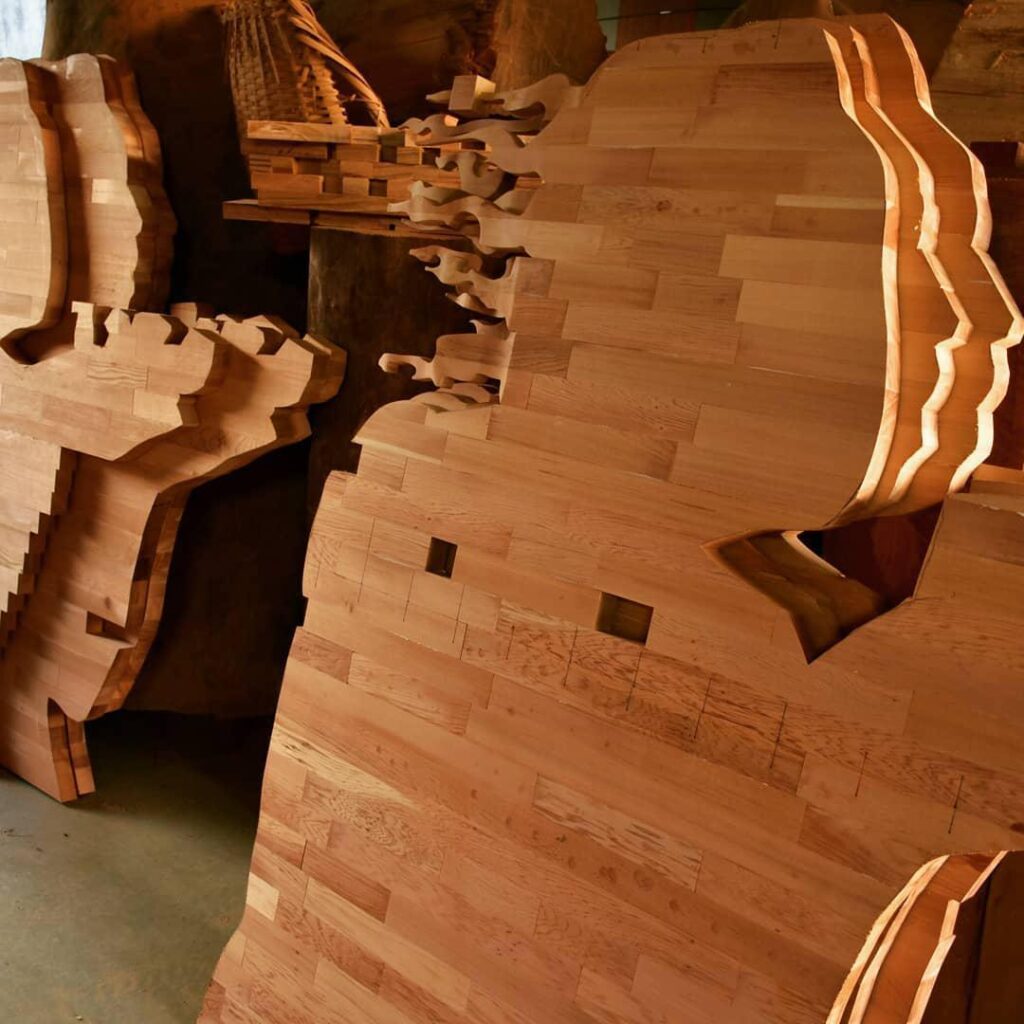
Why Hsu Tung Han’s Art Matters.
In an era where art is increasingly digital, Hsu Tung Han’s pixelated sculptures are a profound statement. They reflect a yearning for tradition while embracing the modern, embodying the duality of human experience in the 21st century. As digital spaces grow, Hsu’s work reminds us that physical craftsmanship and heritage still hold an essential place.
His creations are more than sculptures; they are explorations of what it means to exist in a world that’s constantly shifting between physical and digital realities. Hsu Tung Han has redefined wood sculpture, showing that even in a world of fleeting pixels, traditional craftsmanship can adapt, evolve, and inspire.
Whether viewed as beautiful pieces of art or as symbols of the contemporary human experience, Hsu’s sculptures resonate deeply. Through his vision, we see not only the beauty of tradition but also the potential for its transformation in our digital world.
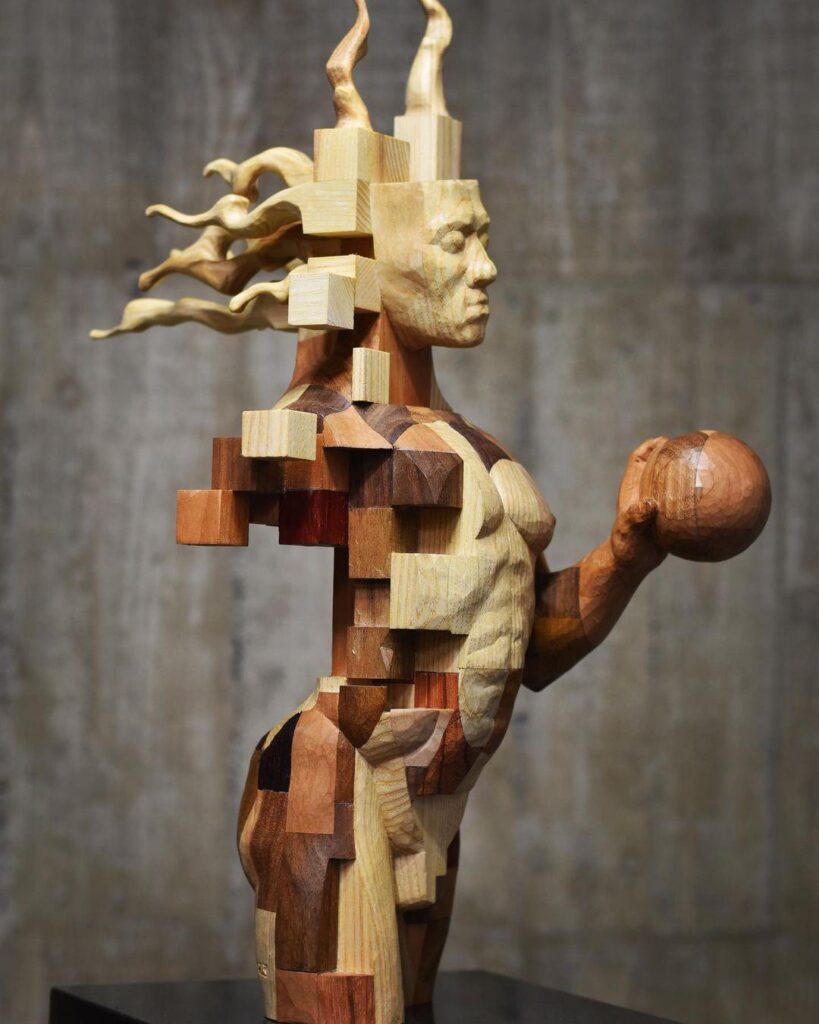
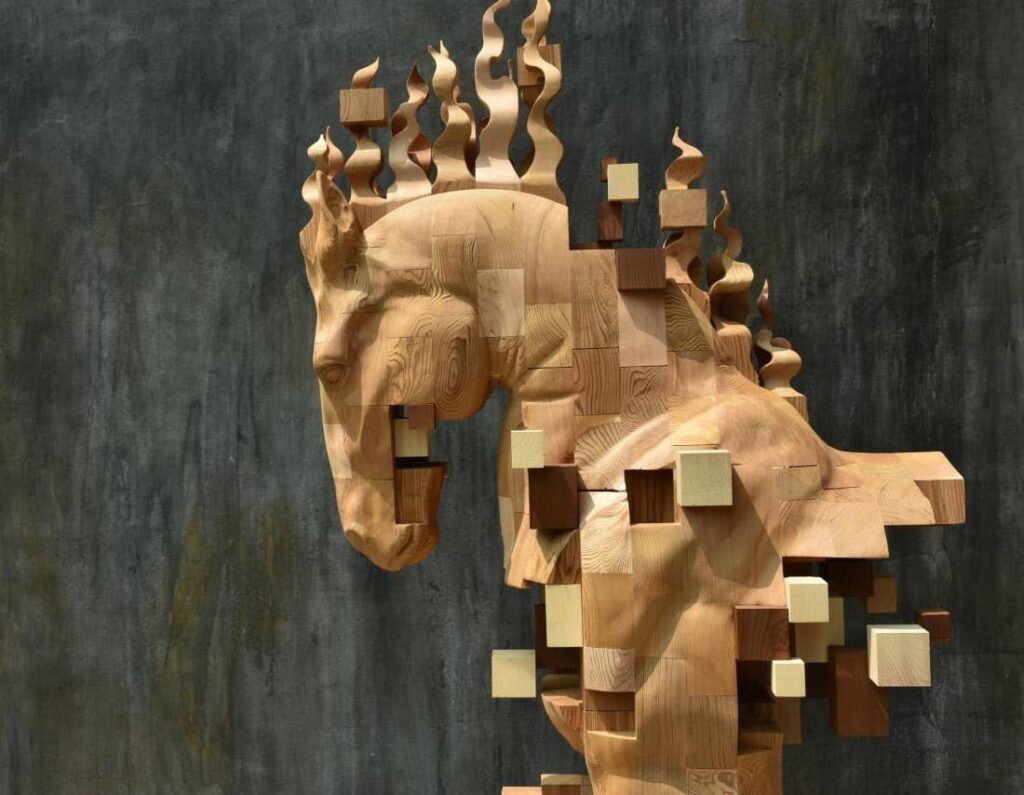
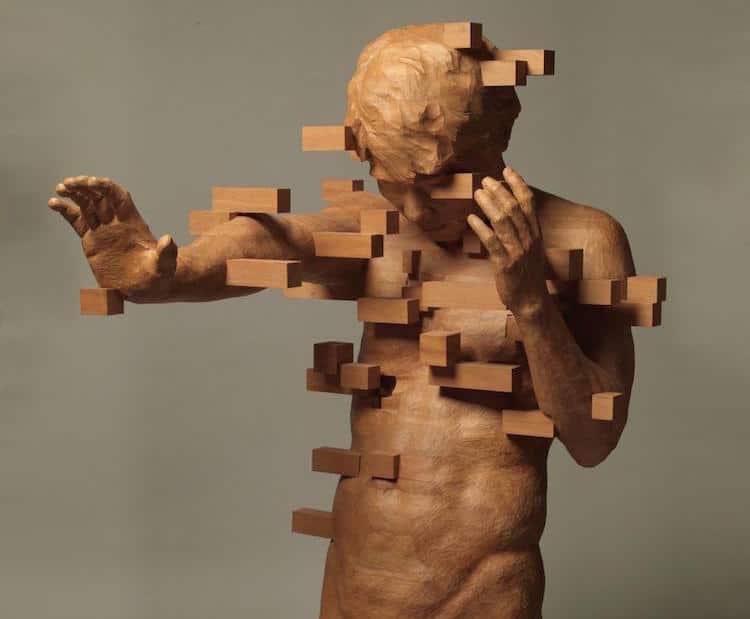
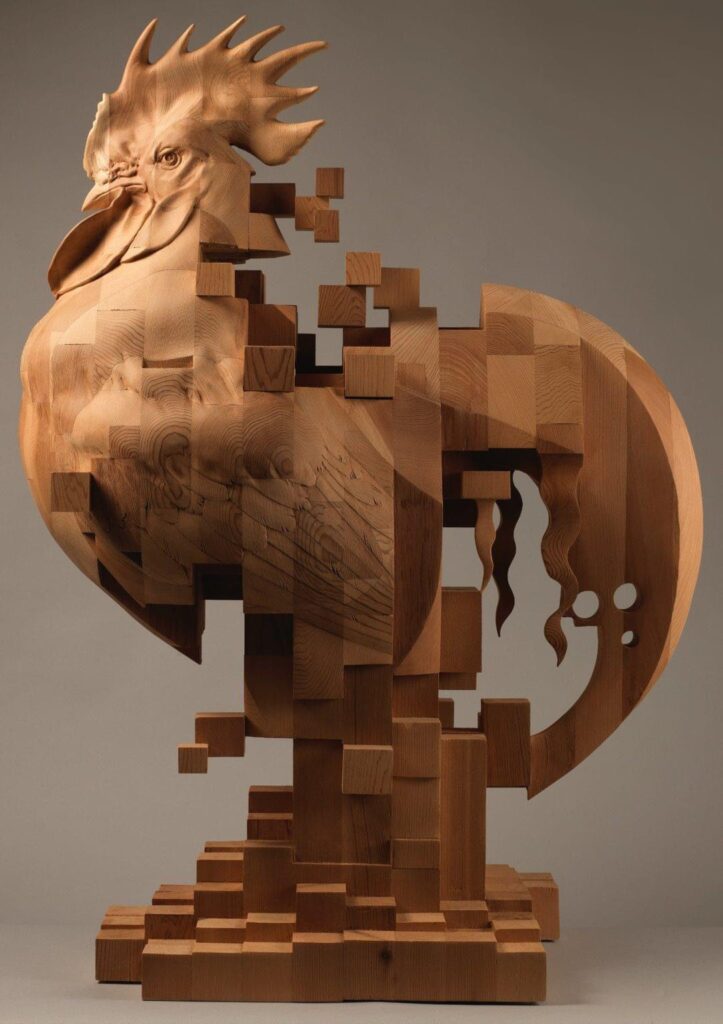
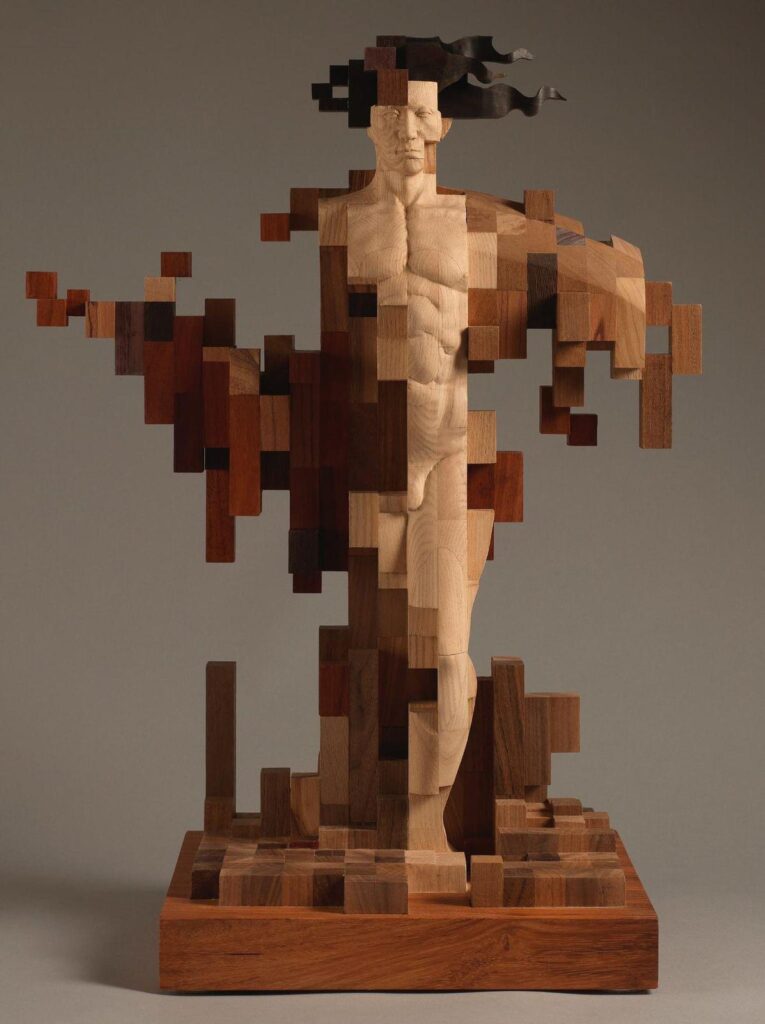
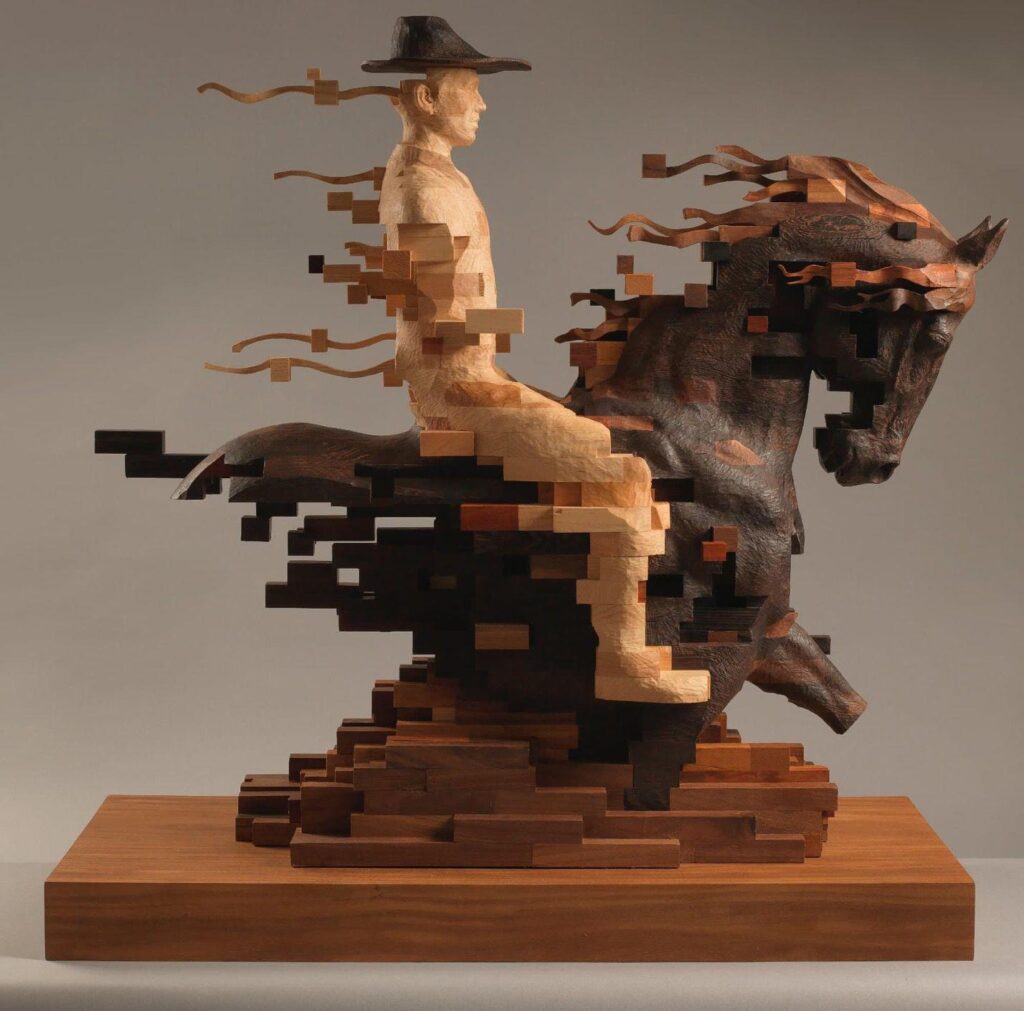
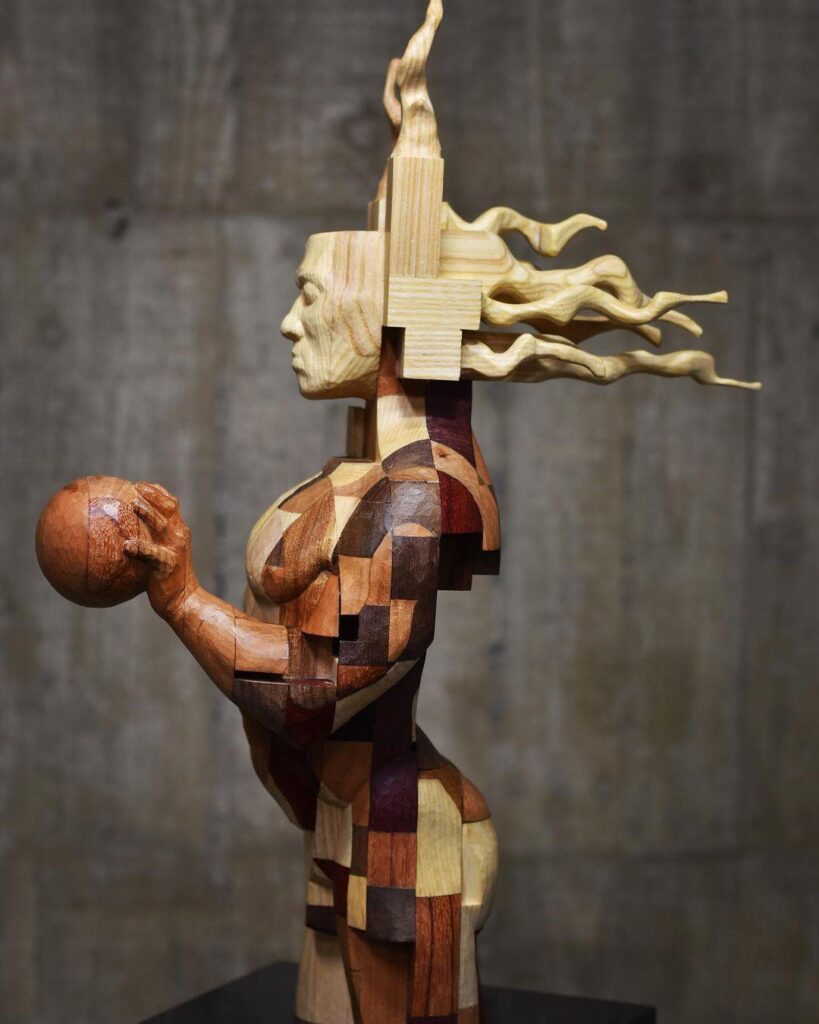
Han’s creations, you can check out our previous feature here, his site and Instagram.

